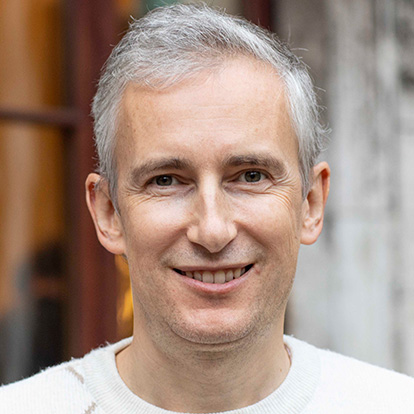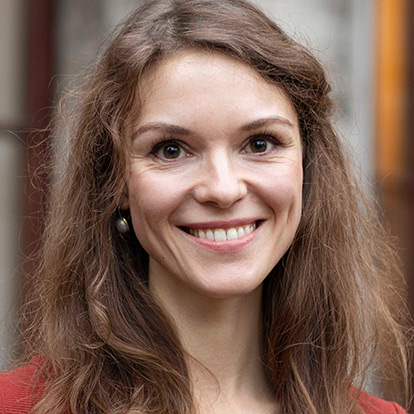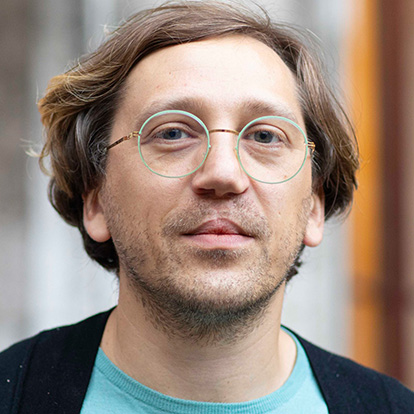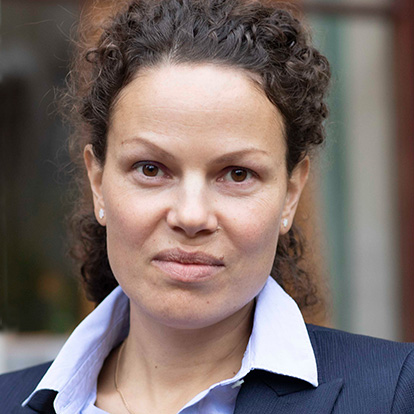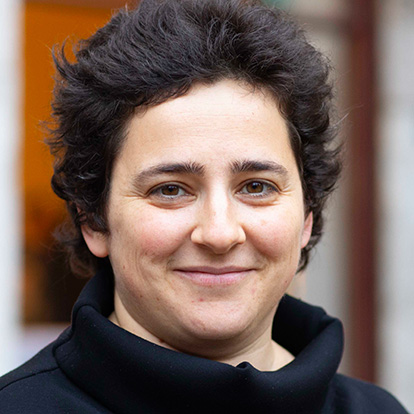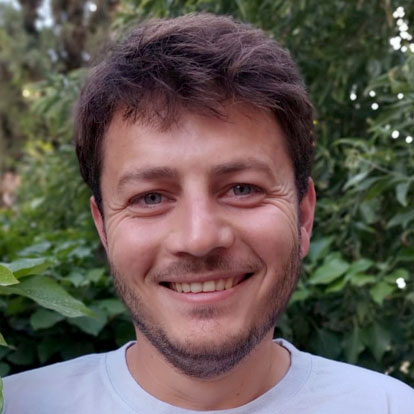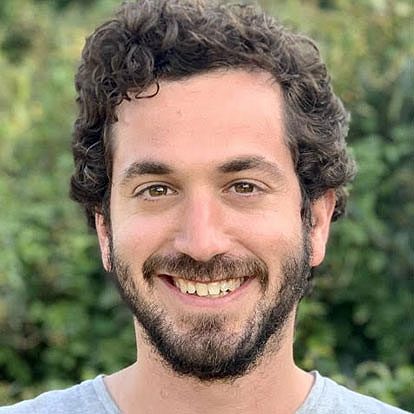

Roman Beliavski is a political science MA student, specializing in Eastern European and Middle Eastern affairs. He has contributed to research and projects at the German Institute for International and Security Affairs (SWP) and the German Marshall Fund (GMF), with a focus on regional security and foreign policy. Fluent in Hebrew, English, German, Ukrainian, and Russian, Roman has also played an active role in promoting international dialogue through organizing and coordinating various events.
The joint Fellowship topic of him and Guilherme Correia da Silva is: The Three Stages of Propaganda
Photo: © PicturePeople
Guilherme Correia da Silva is a journalist and editor with a broad background in international reporting. Currently serving as Deputy Head of the Portuguese for Africa service at Deutsche Welle, Germany’s international broadcaster, he also covers German and European affairs as an overseas correspondent for the Portuguese radio station Rádio Renascença. He holds a Master’s Degree in Political-Historical Studies and a Bachelor’s Degree in Journalism. His reporting has earned him an accolade at the German-Portuguese Journalism Awards.
The joint Fellowship topic of him and Roman Beliavski is: The Three Stages of Propaganda
Photo: © PicturePeople
Yasmin Ismail has worked as an editor, since 2021, producing reports for various television stations, which she has carried out both in Germany and internationally, including in Israel, Turkey, Mexico, and Hong Kong. During her studies in Media Management, she gained practical experience at Süddeutsche Zeitung and ZDF.
Her Fellowship topic is: Irreplaceable and invisible: Fixers – a perspective from the silent helpers of journalists
Photo: © Private
David Issacharoff is an editor and writer for the English edition of Ha'aretz. His writing focuses on Israeli-European politics, Israeli society, antisemitism, and far-right populism, both in Israel and abroad. He studied political science and history at the Hebrew University of Jerusalem and Humboldt University in Berlin. In 2024, he was an Ernst Cramer & Teddy Kollek Fellow at Der Spiegel through the International Journalists' Program (IJP).
The joint Fellowship topic of him and Vera Weidenbach is: Undercoverage of Gaza in Israeli mainstream media
Photo: © Private
Her Fellowship topic is: The influence of TikTok on the perception of the conflict in the Middle East in Israel and the global discourse
Photo: © Private
His Fellowship topic is: A Half-Truth is a Whole Lie: Disinformation and its Dangers in the Israel-Hamas War 2023-2025
Photo: © Jan Lamers
Adi Tal holds an LL.B. and a master's degree in Law and Technology. Her thesis focuses on the intersection of Copyright Law and Artificial Intelligence. During the war in the Middle East since October 7, 2023, she volunteered with the Foreign Media Team of the Hostages and Missing Families Forum, assisting in international advocacy efforts.
Her Fellowship topic is: Crisis, Communication, and Conflict: Media Strategies in the Fight for Hostage Release
Photo: © Private
The joint Fellowship topic of her and David Issacharoff is: Undercoverage of Gaza in Israeli mainstream media
Photo: © Private
Dvir Aviam-Ezra is a Dutch-Israeli international lawyer working as an attorney in one of Israel's prominent capital markets law firms and has alternated in recent years between living in Tel-Aviv, Heidelberg and Brussels. He holds LL.B. and LL.M. degrees in international law from the Hebrew University of Jerusalem and has also spent two semesters studying in Shanghai Jiao Tong University and Shandong University in China. Apart from his legal work, Dvir volunteers in various organizations and initiatives related to Human Rights, Peace, and European Integration. As part of his activism and independent research initiatives, Dvir wrote articles for various leading media outlets such as Der Tagesspiegel, Politico, Globes, The Marker, Forward, and more. Dvir is also active in the field of Israeli-German relations, as a recipient of the Johannes Rau scholarship by the German Embassy in Tel Aviv, Matchmaker in the Future Forum, member of the Israeli-German Lawyers Association and as a speaker in the 2020 Volkstrauertag memorial ceremony held in the Bundestag.
His fellowship research topic is: “Feminism and National Security in Israel and Germany: Between Military Integration and Women-led Diplomacy”.
Photo: © private
Sophie Domres grew up in a small village in the Ruhr region in a working-class family. After spending time abroad in Mexico, she decided to pursue her bachelor's degree in International Relations in Kleve and continued her master's degree in Berlin and Potsdam, as well as an additional degree in Interdisciplinary Gender Studies in Potsdam.
Due to her passion for feminism and global politics, Sophie was actively involved in the internship program at the United Nations in New York, the Goethe Institute in Chile, and the German Foreign Ministry in Berlin.
After her studies, Sophie worked at international non-governmental organizations and the think tank DGAP. Today, she is a Policy Advisor at the German Parliament.
The joint fellowship research project of Sophie and Lena Wittenfeld is: "The Feminist Call to Disarmament: Illusionist Utopia or Political Imperative."
Picture ©:Paul Küster
Moritz Golombek studied criminology in Hamburg and Holocaust and Genocide Studies in Uppsala. Most recently, he completed training as a reserve officer. His main areas of interest are security policy as well as conspiracy ideologies and disinformation in social networks. Moritz is involved with the German-Israeli Society and the Young Forum of the German-Israeli Society, among other organizations, to foster relations between the two countries.
His fellowship research topic is "Thinking Security Together? Challenges and Opportunities of German-Israeli Cooperation in the Field of Digital Disinformation".
Photo: © private
Marcel Laskus is a journalist, working as a reporter and editor for the German daily newspaper Süddeutsche Zeitung since 2021. He is mainly doing reports and profiles. From 2017 until 2021 he worked as an independent journalist for Die Zeit and other newspapers. He completed his training as a journalist at the Deutsche Journalistenschule in Munich. Previously, he studied communication sciences and media informatics in Dresden. Marcel is based in Munich.
His fellowship research topic is: “The decline of the Avoda party – The end of progressive politics in Israel?”
Photo: © Friedrich Bungert/ SZ
His fellowship research topic is: "The open secret: How Israel's policy of strategic ambiguity prevents a value-based public criticism."
Picture ©: private
Elianne Shewring holds a bachelor’s degree in Computer Science from the University of Auckland, New Zealand, and a master’s degree in International Security with a specialization in Intelligence from Massey University, New Zealand. Her main areas of interest are international security, international relations, and policy. She previously worked in the public and private sectors, in domains including the military, mental health, border security, and consulting. She is currently working for Jüdisches Forum für Demokratie und gegen Antisemitismus (JFDA), a non-profit organization focusing on strengthening democracy and tackling antisemitism, racism, and radicalization.
Her fellowship research topic is: “The values underlying the Israeli security policy from a feminist foreign policy perspective”.
Photo: © private
Lena Wittenfeld graduated in March 2023 with a master's degree in "Democratic Governance and Civil Society" at the University of Osnabrück. During her studies, she focused on topics of international relations at the intersections of gender studies. Hence, Lena is primarily interested in scholarly issues in feminist international relations, foreign and security policy, in feminist theories, and in intersectional feminisms. Lena also serves, among other things, as co-program director of the “Gender and International Politics” program at the think tank Polis180 e.V., where she works with members to design events and publications on diverse topics in this field.
The joint research topic of her and Sophie Domres is: "Feminist Call for Disarmament: Illusionist Utopia or Political Imperative".
Photo: © private
Since summer 2021, Maximilian Brien has been studying in the master’s program 'Analysis and Policy in Economics' at the Paris School of Economics. For his bachelor's degree, he studied economics and political science in Heidelberg and Madrid. After graduation, he completed an internship at the International Trade Centre in Geneva. Since 2018, he has been involved with the Heidelberg Institute for International Conflict Research (HIIK). There, as Co-Editor-in-Chief, he was jointly responsible for the publication of the Conflict Barometers 2020 and 2021.
The joint fellowship research topic of him and Giacomo Köhler is: "China’s Belt and Road Initiative in the Middle East: Building Bridges or Fanning Tensions?"
Benaya Cherlow is a second year student in the Honors Track in Strategy & Decision Making at Reichman University, Herzlyia. He is working as a junior consultant at a strategic consulting company. In his studies, he specializes in Israeli-Chinese relations and is currently participating in an internship program at the INSS Institute. Benaya is also active as a spokesperson for the Student Union at Reichman University.
His fellowship research topic is: “Triangle of ‘Siege Mentality', China-Israel-Iran. Game theory & investing model.”
Photo: © private
Mareike Enghusen is an independent journalist from Germany, reporting from the Middle East since 2014, among others for Der Tagesspiegel, Brandeins, Cicero, and Die Zeit. She mainly covers Israel and the Palestinian territories, but also Egypt, Jordan and other countries across the region. She completed her training as a journlist at the Henri Nannen School of Journalism in Hamburg. Previously, she studied politics, Middle Eastern and Islamic studies in Germany, the U.S., France and the UK.
Her research topic for the Fellowship is: "Silk Road to Cairo: China's Strategy in Egypt and the Arab World and What It Means for the West."
Photo: © private
Giacomo Köhler is an MSc Conflict Studies candidate at the London School of Economics and Political Science. Previously, he studied Political Science and History in Heidelberg and Dublin. During his studies, he interned with the German Foreign Office and the Peace Research Institute Frankfurt and was involved with the Heidelberg Institute for International Conflict Research (HIIK). There, as Co-Editor-in-Chief, he was jointly responsible for the publication of the Conflict Barometer 2020. His research interests include contentious politics and the politics of authoritarian transition, with a focus on North Africa and East Asia.
The joint fellowship research topic of him and Maximilian Brien is: "China’s Belt and Road Initiative in the Middle East: Building Bridges or Fanning Tensions?"
Photo: © private
Klara grew up in Berlin and London. Currently, she is studying political science, geography and law in Freiburg. As a student assistant at the Chair of International Politics, she has been involved in academic work on the EU, autocracy research, and China as a political actor. She based her studies on these topics. She is writing her political science thesis on the reassessment of space in the context of 21st century connectivity strategies. During an internship at the Center for International Peace Operations in Berlin, she gained insight into how political science and practical work can converge in the field of peace and conflict research. Klara gained her first experiences in cross-media production in the student university newsroom. As a news analyst, she writes political short news for the company Mediabrief. During the semester break, Klara loves to ride through Europe on her bicycle.
Her research topic for the fellowship is:is: “High-tech Cooperation with China. How Far Can Israel Go? Tactical Benefit vs. Strategic Danger?”
Photo: © private
Julian Pfleging is currently studying European Affairs – Political Science in a Dual Degree M.A. at Sciences Po Paris and Freie Universität Berlin. Previously, he completed his B.A. in Political Science and Middle Eastern Studies at the University of Leipzig with a year abroad at the Hebrew University of Jerusalem. His main interests are European foreign and security policy and International Relations in the MENA region. On top of his studies, Julian has completed internships at the German Institute for International and Security Affairs (Stiftung Wissenschaft und Politik), the Mideast Freedom Forum Berlin, and the German Federal Foreign Office. As a scholarship holder of the Congress-Bundestag-Youth-Exchange, he lived in Chicago as a teenager. He feels a special affinity for the triangular relationship between Germany, Israel, and the USA and is committed to friendly relations between these countries and against antisemitism.
His fellowship research topic is: "Strings attached: Chinese Influence in the MENA Region as a Transatlantic Security Risk".
Hila Roded holds a B.A. in government, diplomacy and strategy from Reichman University. In her studies, she specializes in national security issues, Chinese-Israeli relations and worldwide terrorism. Hila also hosts the official podcast of the Lauder School of Government at Reichman University, "Talking Lauder", which covers foreign policy issues from the nuclear agreement with Iran to the Abraham Accords.
Her fellowship research topic is: “The Chinese foothold in Israel”.
Photo: © private
Maya Rollberg is a master’s student in Environmental Governance living in Freiburg, where she works as a freelance editor for Südwestrundfunk, mostly in the radio studio. She is also a freelance host for cultural events or political discussion formats, especially for a younger audience. In addition to her studies, she engages as a spokesperson for the Senate of the University of Freiburg and within the Friedrich Ebert Foundation. In the young journalists' collective "We Talk Freiburg", she volunteered on working on topics like remembrance culture and integration. During her year abroad at Penn State University, she dealt intensively with the lines of conflict between Israelis and Palestinians from an American perspective. She is active in the independent theater scene in Freiburg as an actress and director.
The joint fellowship research topic of her and Lukas Wiehler is: "Young Israelis love China – but why?"
Photo: © Dorina Milas
Einav Shiff is an Israeli journalist, working for Yediot Ahronot – Israel’s leading media outlet. Starting his career in journalism when he was just 17, Einav has gained extensive experience as a writer and an editor. His main focus is on culture and its impact and connection to other fields, such as politics, economics, and technology. Einav has been acting as the chief TV critic for Yediot Ahronot, reflecting daily on the content revolution of the 21st century. He is also a senior op-ed writer and has a weekly column, which dissects digital trends, in Israel and around the world. Einav has a master’s degree in Organizational Counselling. In 2018, he was chosen to be an Ernst Cramer & Teddy Kollek fellow, during which he worked as an associate at the German media outlet Tagesspiegel. Einav lives in London.
His fellowship research topic is: “The TikTok Dilemma – Can the West Trust Chinese Innovation?”
Photo: © Nimrod Saunders
Lukas Wiehler holds a M.A. in Transnational Governance from the European University Institute in Florence and the Hertie School of Governance in Berlin. For his master's thesis, he focused on transnational regulatory approaches to artificial intelligence. Previously, he specialized in the politics of the Middle East and Turkey, among other topics. While studying, he worked as an editor for the ZDF debate format '13 Questions'. Lukas was an intern for the satirical TV show 'Neo Magazin Royale’ with Jan Böhmermann, the Baden-Württemberg State Representation in Berlin, the foreign policy working group of the SPD parliamentary group as well as the department 'International and European Trade Union Affairs' of the German Trade Union Confederation.
The joint fellowship research topic of him and Maya Rollberg: "Young Israelis love China – but why?"
Photo: © School of Transnational Governance / Elena Annabel Teagno
Roy Zunder is an Israeli social scientist and journalist living in Berlin. Previously, he received his bachelor's and master's degrees in art history and anthropology from Tel Aviv University.
Today, Roy writes about art, culture, and history for the Israeli newspaper Ha'aretz. He is particularly interested in interviews with individuals whose unconventional perspectives on pressing political issues can enhance and challenge public debates in Israel. In this context, for example, he spoke with German historian Hedwig Richter about German foreign policy.
His fellowship research topic is: “The Rise of Confucius: Academic Freedom in Germany and Israel.”
Photo: © private
Jakob Flemming is a Berlin based political scientist. He holds a B.A. and an M.A. degree from his studies in Political Science, Jewish Studies as well as in International Politics and International Law at Heidelberg University, Kiel University and at the University of Kansas. The focus of his studies was the research on legislative behavior. In his M.A. thesis, he analyzed the determinants of foreign policy voting behavior in U.S. Congress by applying quantitative methods. Jakob is actively committed to the German-Israeli relations as well as to the transatlantic relations by working in the Youth Forum of the German-Israeli Society and in the Young Transatlantic Initiative.
His fellowship research topic is: “Seeking Common Ground: Identity Politics in the Legislatures of the U.S., Israel, and Germany”
Dor Glick is an Israeli journalist with 15 years of investigative journalism experience, covering international politics, economics and historical themes. Dor worked in leading television channels and radio stations, as well as print and online journalism. His career began in 2004 during mandatory military service for Israel’s national radio network, Galei Tzahal. As Europe Correspondent for Channel 10 News (Israeli TV) based in Berlin, Glick exclusively interviewed Chancellor Angela Merkel in 2018. He was a Knight-Bagehot Fellow (2018/19) in Economics and Business Journalism at Columbia University in New York City. Dor served as parliamentary assistant in the German Bundestag, and was website editor and project manager for Goethe-Institut in Israel. He has degrees in International Relations and History from Hebrew University of Jerusalem and London School of Economics and Political Science (LSE). Dor's thesis on non-traditional forms of resistance in the Lodz ghetto received a distinction from LSE.
His fellowship research topic is: “Culture of Remembrance, Social Cohesion and National Security: An Overlooked Connection Crucial For Modern Democracy”
Photo: © Ruth Zuntz
Lisa Hänel is an editor at Germany’s international broadcaster “Deutsche Welle”, where she completed her journalism traineeship from 2017 to 2019. She has written, among other things, about the anti-Semitic attack on the Halle synagogue and so-called “Israel-criticism”, both for TV and online contributions. Prior to her position at Deutsche Welle, Lisa worked for media outlets such as Frankfurter Allgemeine, Deutsche Presse-Agentur, Deutschlandfunk and Internationale Politik. Her last international trip before the Corona pandemic brought her to Israel, where she is eager to travel again for her first trip after the pandemic.
Her fellowship research topic is: “Jewish Pride: The blind spot of Identity Politics?”
Bastian Kaiser is a journalist and communications expert who specializes in international politics and security. He studied Journalism at Technische Universität Dortmund as well as International Affairs at the Hertie School of Governance in Berlin and the Institut Barcelona d’Estudis Internacionals. Following a one-year journalism traineeship (Volontariat) at the West German Broadcasting Corporation (WDR), he worked as a reporter in German public media. As a freelance journalist and a scholarship holder of the Konrad-Adenauer-Foundation’s journalism academy, Bastian reported from various European countries, the Middle East, and South America. Since 2019, he has been working as a Communications Manager at the Berlin office of the Munich Security Conference.
His fellowship research topic is: “Security through dialogue: How initiatives in Germany, Israel and the United States create new spaces for debate”
Jonathan Kovac grew up in Israel as the son of a German mother and an American-Israeli father. As such, the daily exchange between cultures, languages and people was an essential component of his upbringing and led to his interests in international security and cultural exchange. Jonathan received his B.A. in Political Science and German Studies from Yale University and his M.A. in International Affairs from the Hertie School in Berlin. Jonathan’s academic interests center around diplomacy, military interventions, politics of the Middle East, and NATO, which partially inspired his thesis: “Economic Interdependence and Deterrence: The Determinants of Troop Contribution to NATO’s Enhanced Forward Presence.” Aside from international security, Jonathan has studied the role of religiosity in the Israeli-Palestinian conflict and how dehumanization operated in the concentration camps, using the works of Primo Levi and Hannah Arendt and the testimonies of Holocaust survivors. Jonathan has served in the Israeli Defense Forces and interned at the German Bundestag, Boston Consulting Group, and the German Foreign Ministry, where he analyzed rising rates of anti-Semitism across Europe.
His fellowship research topic is: “The Rise of Identity Politics and Changing Perceptions of National Security”
Rebecca Rose Mitzner is a philosopher with a German-American family background.
From 2011 to 2018, she studied Philosophy, Jewish Studies and European Ethnology (B.A.), Interreligious Studies (M.A.) and Human Rights and Transitional Justice (M.A.) in Germany, Israel and England. During her time at university, she was active, amongst others, for Hillel International, Deutsch-Israelische Gesellschaft e.V. and the Friedrich-Ebert-Foundation. In 2019, she was a Goldman Fellow at the AJC’s Africa Institute in New York City.
Rebecca is an ELES Research Fellow and has been working on her PhD in Jewish Philosophy on the topic of Jewish identity since 2020. She is also currently addressing this topic in a book on the Shoah survivor Elias Feinzilberg and in a Brodt Foundation project.
Her fellowship research topic is: “Black, White or In-Between? The Global Meaning of Jewish Identity Politics”
Georg Reichel is a Master's student of Political and Social Sciences at the University of the German Armed Forces in Munich. After graduating from the Domgymnasium in Fulda, he joined the German Navy as an officer candidate in 2016 and, after successfully completing the officer training course, began studying political and social sciences with a specialization in international law and politics in 2017.
In addition to his studies, he volunteers in various youth work projects and in organizations that deal with security, education and climate policy, among other things.
His hobbies include long-distance hiking, attending theater performances and traveling.
His fellowship research topic is: “The armed forces and their identity/ies” (working title)
Lena Voelk is a photo journalist and currently studying political science, history and photography in Munich. As a journalist and photographer she is working, amongst others, for Deutsche Presse-Agentur and Süddeutsche Zeitung. She will also soon start a traineeship at the London studio of the German public-service broadcaster ZDF. Lena has worked as a photographer for the Israeli Press Agency. In her freelance photographic work, based on a sociological and anthropological approach, she is interested in Jewish identity and antisemitism. In her work as a journalist, as well, she focuses on the political developments in the Middle East as well as anti-Semitism. She has developed a video segment for Süddeutsche Zeitung, examining the linguistic Nazi heritage in the German language. Starting in October 2021, she will work in Paris and study at SciencesPo there.
Her fellowship research topic is: “(Mis)using Israel: Antisemitic resentments and storytelling in new far-right extremist groups in Germany vs the USA”
Isabel Weiss is currently writing her PhD thesis on the sacralization of state politics in Israel at Berlin’s Humboldt University. Prior to that, she studied, amongst others, at the Hebrew University of Jerusalem; in her Master thesis she examined the emancipation process of Mizrahim and the rise of the Shas party. After her studies, Isabel lived in Israel for several years and worked at the Jewish Claims Conference in Tel Aviv. Currently, she is active in the International Doctoral Program “Security and Development in the 21st Century”. During her studies, Isabel spent time in Pakistan, Afghanistan and Yemen for research. Most recently, she worked for a project with BwConsulting, the inhouse consultancy of the German Federal Armed Forces.
Her fellowship research topic is: “Which crisis are we facing? The limits of liberalism”
Her fellowship research topic was: “Jewish-Muslim Relations in Germany, Israel and the USA”
Itamar Ben-Ami is a doctoral student at the Department of Political Science at the Hebrew University of Jerusalem, and a graduate of the ultra-Orthodox yeshiva world. His dissertation, “The Schmittian Jews: Leo Strauss, Isaac Breuer, and the Invention of Jewish Theological Politics”, focuses on critical and theocratic conceptualizations of the modern sovereign state, concentrating on the thought of German-Jewish thinkers in the Weimar Republic. His research interests include intellectual history, political theology, critical political theory, and conceptual history.
His fellowship research topic was: "Between Liberalism and Populism. The Transformation of Liberalism and Populism in the US, Germany, and Israel"
Benjamin Brown is a British-German journalist and studies political science, economics and history. As a journalist, Benjamin works for a number of outlets including the German Press Agency (dpa), the newspaper Der Tagesspiegel and German public service broadcasters BR and ARD. In Israel, Benjamin worked for the Israeli News Agency for six months, having previously published from the country for Der Tagesspiegel. In his work for German public service media, Benjamin has covered several topics including anti-Semitism in German football. Before working for the Israeli News Agency, Benjamin completed an exchange semester at the Hebrew University of Jerusalem. He will graduate from Ludwig-Maximilians-University (LMU) Munich in the summer of 2020, before pursuing an MSc in “Modern Middle Eastern Studies” at the University of Oxford.
His fellowship research topic was: "Israel, the Jewish Diaspora and their role in International Relations.”
photo: © Lena Völk
Hanno Hauenstein is a writer and journalist based in Berlin. He is the founder and editor of the Hebrew-German arts journal aviv Magazine.
His fellowship research topic was: "Majority and minorities. Pluralistic societies are all based on the diversity of minorities"
Her fellowship research topic was: "Heimish in the Holy Land - A research on the descendants of German Jews in Israel in the context of the US election year"
Noa Rekanaty is currently a B.A. student at the Lauder School of Government at IDC Herzliya. She believes that by learning the different cultures and ideologies of the world’s residents we will be able to have warmer diplomatic relations between countries and make the world a better place.
Noa is an avid activist and advocates for Israel through different social organizations and through writing articles. Noa is passionate about reading, cooking, and learning, and loves passing on her own knowledge and experiences as she loves traveling around the world. Her research focuses on European Jews who immigrated to the US after WW2, why they chose America, and how this influences US-Israel relations up until today. Later in life, Noa is hoping to get a second and third degree and to become an educator and advocate at different institutions.
His fellowship research topic was: „Russian-speaking writers in Germany and Israel: Reflecting and Shaping a Socio-Cultural Environment”
Rebekka Hahn has a diploma in translation studies and has passed the 2nd state grammar school (“Gymnasium”) and comprehensive school (“Gesamtschule”) teacher’s examination. In the summer of 2019, she exchanged her rewarding and worthwhile job working as a teacher of English, French and art for the post of research assistant at the Faculty of Educational Science at the University of Bielefeld. She is also a research assistant at the Museum of Russian-German Cultural History in Detmold. She works as a voluntary ambassador for International Justice Mission, a human rights organization.
Rebekka Hahn loves books and music, as well as dancing and traveling. She has a passion for learning and teaching, and for people’s life stories. As an exponent of biography research, she is fascinated by the way we become who we are, and yet never stay that way, and by what supports and motivates us. Her research focuses on how a sense of belonging and a commitment to values are intertwined. In her dissertation project, she is studying the everyday environments and life journeys of young, second-generation Russian-German women.
Her fellowship research topic was: “Belonging and Self – A biographical study among second-generation female ethnic Germans from the former Soviel Union”
His fellowship research topic was: “The impact of ethnic and/or cultural affiliations as well as religiosity on mental health outcomes in Jewish immigrants from the Former Soviet Union (FSU) in Germany and Israel”
For more information, see:
www.uniklinikum-leipzig.de/
www.researchgate.net/profile/
Jonna Rock is a sociolinguist, ethnologist and cultural scientist. Her monography "International Memory and Language of the Sarajevo Sephardim" (Palgrave Macmillan), which appeared in July 2019 and which is based on her doctoral thesis at the Humboldt-Universität zu Berlin, examines how Jews and Sarajevo are redeveloping and redefining their self-identity since the fall of communism. Jonna has also produced a film, "A Sarajevo Jewish Story", which is also based on her research. The film was shown at the Sarajevo Film Festival (2018), the London Wiener Library (2019), and elsewhere.
Currently, Jonna is conducting research on the people who assisted members of the Jewish community in the former Yugoslavia, on behalf of the Silent Heroes Memorial Center in the German Resistance Memorial Center in Berlin. As a Sylke Tempel Fellow at the German-Israeli Future Forum in 2019, Jonna researched the interaction between different Russian-speaking actors in Berlin.
Her fellowship research topic was: Negotiating Germanness, Jewishness and Russianness in an era of changing social boundaries: A study of identity formation amongst Russlanddeutsche, Russian Jews and ethnic Russians in Berlin
Liza Rozovsky was born in Moscow, moved to Israel aged 10, and grew up in Jerusalem. She started her own family in a suburb of Tel Aviv, but at 38 made the life-changing decision to move to Dresden, where she now lives with her husband and two children. Liza Rozovsky has spent most of her professional career working as a journalist, for TV, radio, the Internet and print media. While she is used to talking and reporting mainly in Russian and Hebrew, she hopes to continue to write about a wide range of issues in different languages, as long as she is able and in whichever country she has the possibility of doing so.
Her fellowship research topic was: "Immigration 2.0: What brings young Russian speaking Israelis to Berlin?"
Our Fellows
Year 2025







Year 2023/24
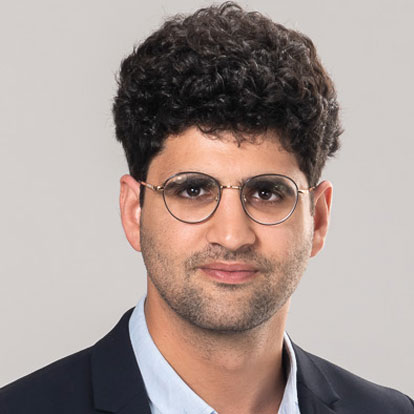
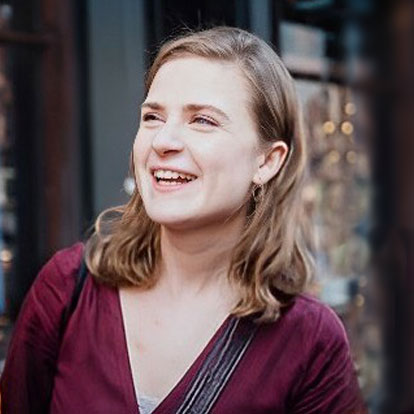
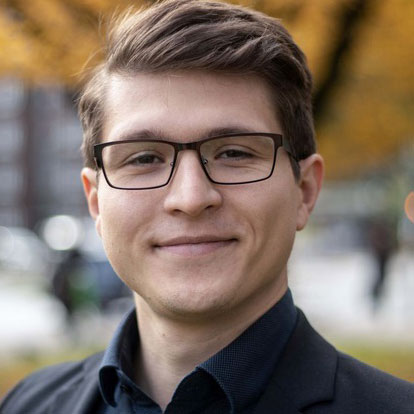
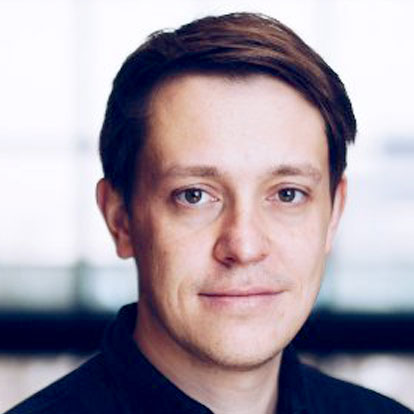
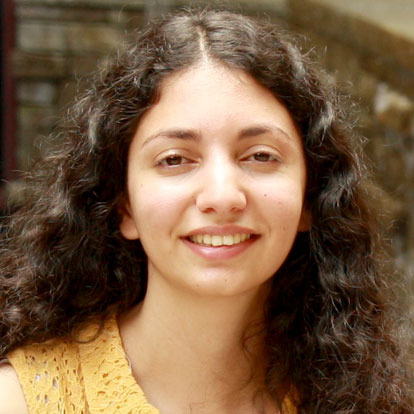
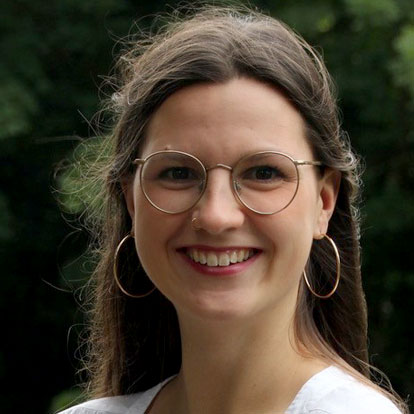
Year 2022
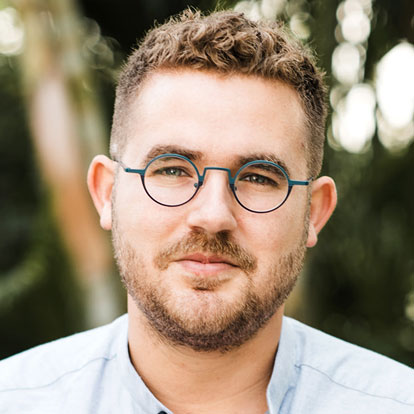

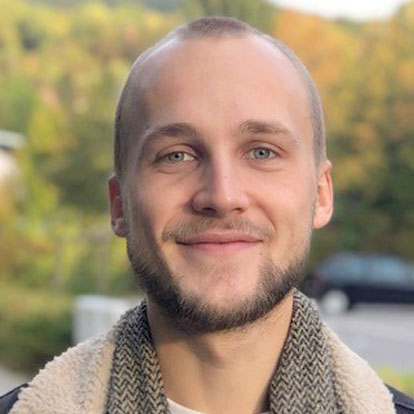
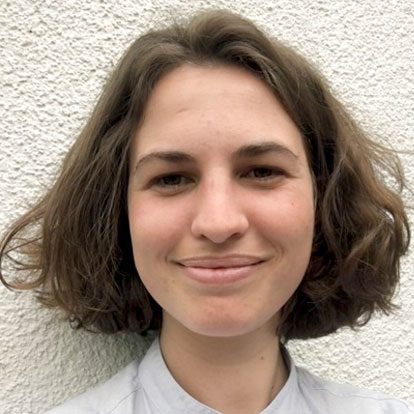
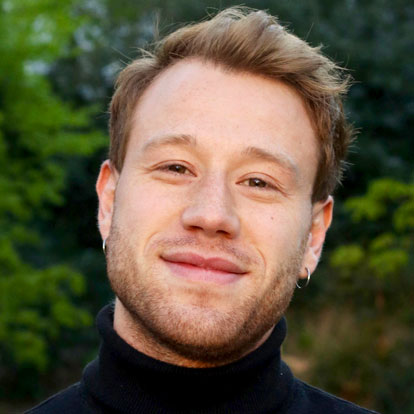
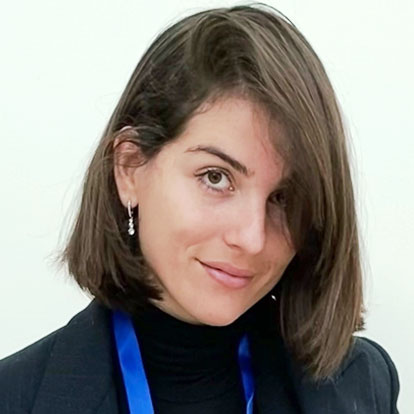
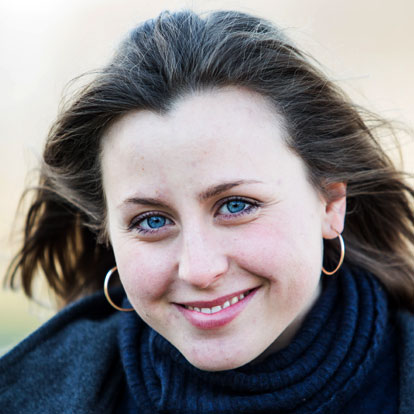
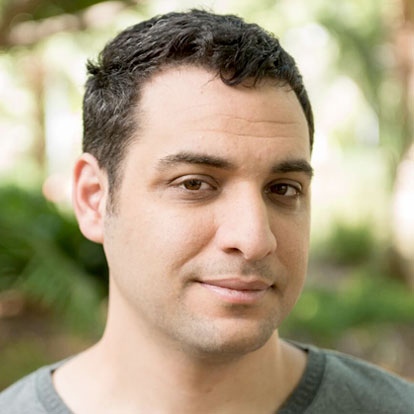
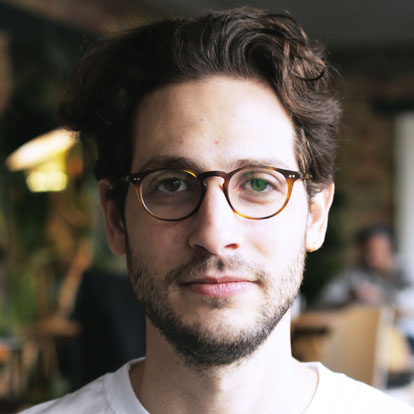
Year 2021

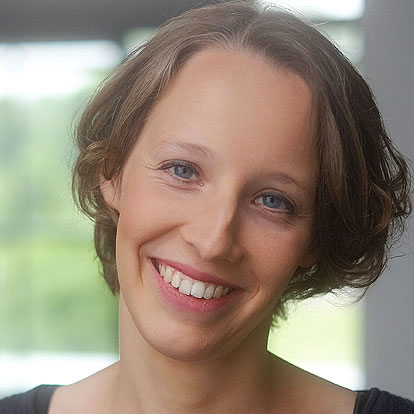
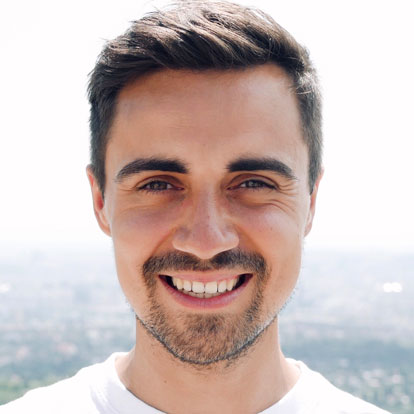
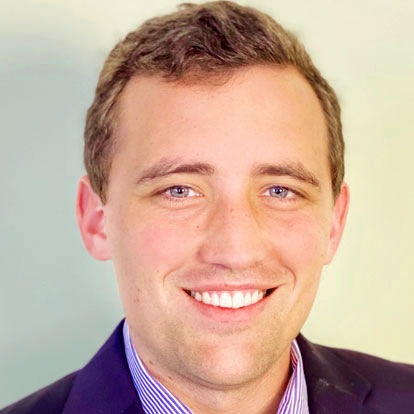
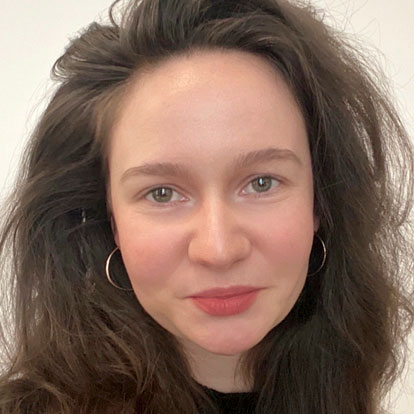
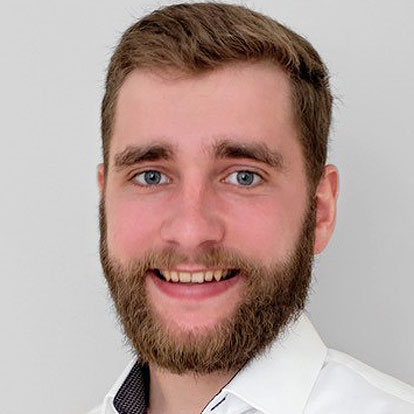
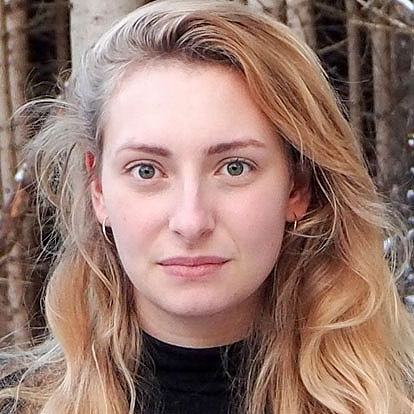
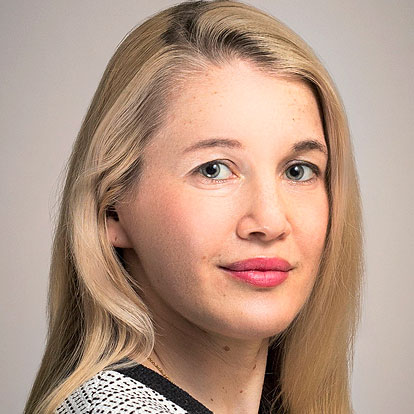
Year 2020
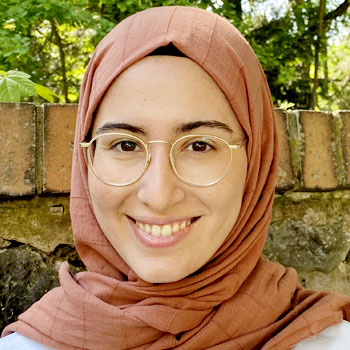
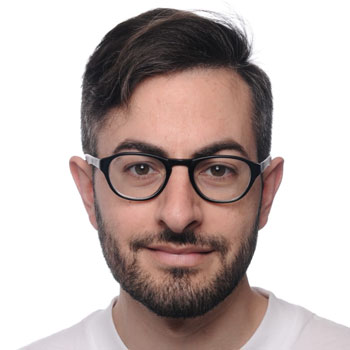
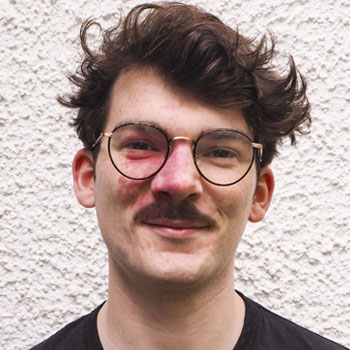
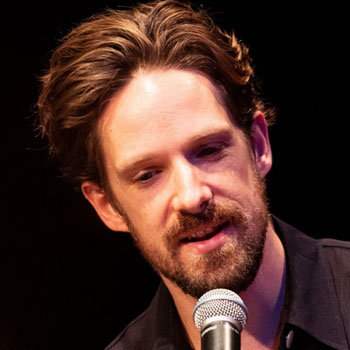
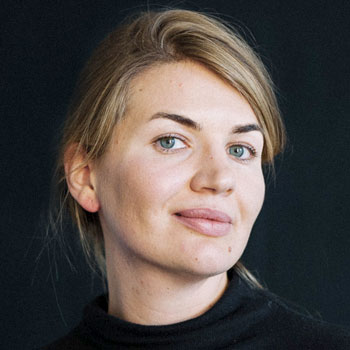
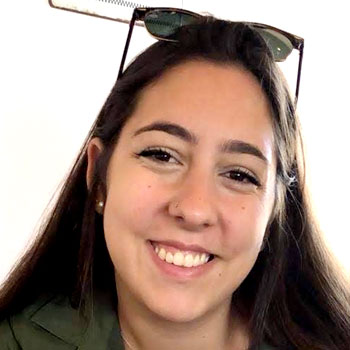
Year 2019
